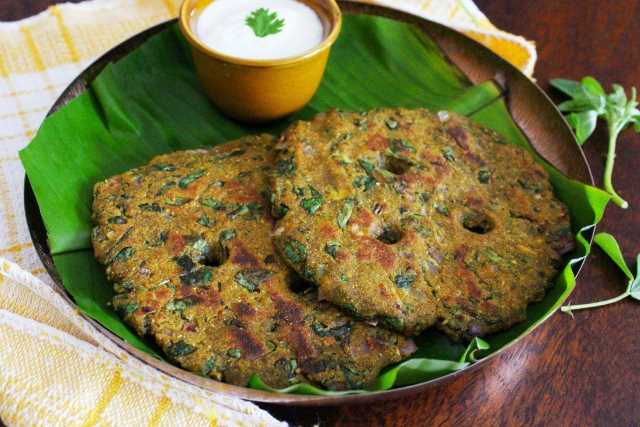Eat Well, Live Well: A Diabetic-Friendly Indian Meal Plan for Every Day

Managing diabetes involves making healthy food choices to control blood sugar levels. A well-balanced diet can help diabetic patients maintain stable glucose levels, manage weight, and reduce the risk of complications. This article provides a comprehensive diet chart for diabetic patients, including foods to have and foods to avoid.
Foods to Have
1. Whole Grains: Opt for whole grain options like brown rice, quinoa, whole wheat bread, and oats. These are rich in fiber and help regulate blood sugar levels.
2. Lean Proteins: Include lean sources of protein like skinless chicken, turkey, fish, tofu, and legumes. These provide essential nutrients without raising blood sugar levels.
3. Non-Starchy Vegetables: Fill your plate with non-starchy vegetables such as broccoli, spinach, cucumbers, peppers, and cauliflower. These are low in carbohydrates and high in fiber.
4. Healthy Fats: Choose healthy fats from sources like avocados, nuts, seeds, and olive oil. These fats are beneficial for heart health and help control blood sugar levels.
5. Low-Fat Dairy: Opt for low-fat dairy products such as skim milk, Greek yogurt, and cottage cheese. These provide calcium and protein without adding excessive fat or sugar.
6. Fruits: Enjoy fruits in moderation, focusing on low glycemic index options like berries, apples, and citrus fruits. These are packed with vitamins, minerals, and fiber.
Foods to Avoid
1. Refined Grains: Avoid refined grains like white bread, white rice, and pasta. These are stripped of fiber and can cause a rapid rise in blood sugar levels.
2. Sugary Drinks: Stay away from sugary beverages like soda, fruit juices, and energy drinks. These are high in added sugars and can lead to spikes in blood glucose levels.
3. Processed Foods: Limit the consumption of processed foods such as packaged snacks, cookies, and cakes. These often contain unhealthy fats, added sugars, and high sodium content.
4. Trans Fats: Avoid foods with trans fats, including fried foods, margarine, and commercially baked goods. Trans fats can increase the risk of heart disease and worsen insulin resistance.
5. High-Sodium Foods: Reduce the intake of high-sodium foods like canned soups, processed meats, and fast food. Excessive sodium can raise blood pressure and increase the risk of heart disease.
Seven-Day Sample Meal Plan for Indian Diabetic Patients
Disclaimer: This is a sample meal plan and should not be considered a substitute for professional medical advice. Always consult your doctor or a registered dietitian for personalized recommendations based on your specific needs and health conditions.
General Guidelines:
- Aim for 3 meals and 3 snacks per day to regulate blood sugar levels.
- Choose whole grains over refined grains for more fiber and sustained energy.
- Include plenty of vegetables and fruits in your diet.
- Opt for lean protein sources like fish, legumes, and poultry.
- Limit saturated and unhealthy fats, added sugar, and processed foods.
Day 1:
Breakfast:
- 2 masala oats pancakes with mixed berries and a glass of low-fat milk
Mid-morning Snack:
- A handful of roasted almonds and a small apple
Lunch:
- 2 whole wheat chapatis with mixed vegetable curry and a small portion of grilled chicken
Afternoon Snack:
- Sprouted moong dal salad with cucumber and chopped vegetables
Dinner:
- Brown rice with lentil stew and roasted cauliflower
Day 2:
Breakfast:
- Vegetable poha with chopped green chili and a glass of buttermilk
Mid-morning Snack:
- A small bowl of mixed nuts and seeds
Lunch:
- 2 wheat rotis with spinach dal and a small serving of fish curry
Afternoon Snack:
- A cup of plain yogurt with a sprinkle of cinnamon and chopped nuts
Dinner:
- Quinoa salad with mixed vegetables and grilled tofu
Day 3:
Breakfast:
- Omelet with chopped vegetables and 2 whole wheat toast
Mid-morning Snack:
- A handful of roasted chickpeas
Lunch:
- Vegetable biryani with a side salad
Afternoon Snack:
- A small banana with a glass of buttermilk
Dinner:
- Chicken soup with whole wheat noodles and a mixed vegetable salad
Day 4:
Breakfast:
- Ragi dosa with coconut chutney and sambar
Mid-morning Snack:
- A bowl of mixed fruit salad with a sprinkle of chia seeds
Lunch:
- 2 whole wheat chapatis with mixed vegetable curry and a small portion of paneer
Afternoon Snack:
- Roasted makhana (foxnuts) with a sprinkle of spices
Dinner:
- Brown rice with rajma masala and a side of roasted spinach
Day 5:
Breakfast:
- Besan cheela with chopped vegetables and a glass of low-fat milk
Mid-morning Snack:
- A small bowl of mixed sprouts
Lunch:
- 2 wheat rotis with chana masala and a small serving of grilled chicken
Afternoon Snack:
- A cup of plain yogurt with chopped fruits and a drizzle of honey
Dinner:
- Khichdi with mixed vegetables and a side salad
Day 6:
Breakfast:
- Upma made with semolina and vegetables
Mid-morning Snack:
- A handful of roasted pumpkin seeds
Lunch:
- Vegetable pulao with raita
Afternoon Snack:
- A small bowl of mixed nuts and dried fruits
Dinner:
- Tofu scramble with whole wheat toast and a side of sautéed vegetables
Day 7:
Breakfast:
- Vegetable omelet with chopped vegetables and whole wheat toast
Mid-morning Snack:
- A small apple with a sprinkle of cinnamon
Lunch:
- 2 whole wheat chapatis with dal makhani and a small portion of grilled fish
Afternoon Snack:
- A cup of plain yogurt with a sprinkle of granola and berries
Dinner:
- Vegetable kofta curry with brown rice and a side salad
Additional tips:
- Drink plenty of water throughout the day.
- Limit alcohol consumption.
- Engage in regular physical activity.
- Monitor your blood sugar levels regularly.
Please note that this is just a sample meal plan and may need to be adjusted based on your individual needs and preferences. It is important to talk to your doctor or a registered dietitian for personalized recommendations to manage your diabetes effectively.
A well-planned diet is crucial for managing diabetes effectively. Remember to consult with a healthcare professional or a registered dietitian to create a personalized diet chart that suits your specific needs. By making smart food choices and following a balanced meal plan, diabetic patients can lead a healthy and fulfilling life.




